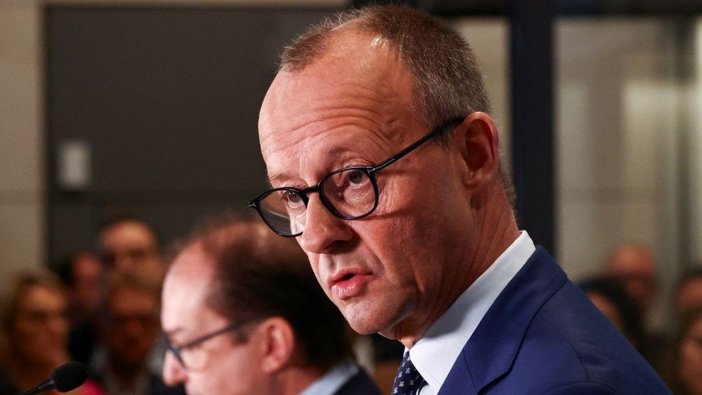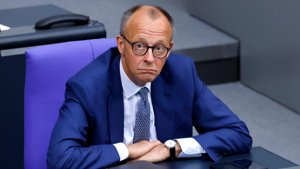
Merz Demands Real Reforms in Bundestag Battle
Chancellor Merz used the Bundestag budget debate to demand sweeping reforms, triggering sharp criticism from AfD and Left over the government’s direction.
Berlin — German Chancellor Friedrich Merz used the Bundestag’s marquee budget debate to argue that only “real” structural reforms can preserve the country’s social model and revive growth, while opposition parties accused his black-red coalition of misplaced priorities and fiscal recklessness. The clash, which unfolded during parliament’s traditional Generaldebatte, underscored both economic anxiety and sharpening political divides.
Merz Stresses Urgency, But Keeps Details for Cabinet Retreat
Merz framed Germany as being in one of its “most challenging phases in recent history” and said the government would accelerate decisions to spur investment and competitiveness. He signaled that specifics would land at a cabinet retreat next week focused on state modernization, rather than laying out a granular package on the floor ZDFheute.
The chancellor also reiterated plans for high-level summits with the steel and auto sectors—industries he called vital yet under acute pressure from tariffs, Chinese competition and weak demand—aimed at identifying immediate relief and a longer-term path to keep production in Germany.
Social Democrats Demand Speed: Housing, Red Tape, Infrastructure, Digital
From within the governing camp, SPD parliamentary leader Matthias Miersch echoed the urgency, warning that a passed budget alone “doesn’t reach people” without fast execution. He highlighted four immediate priorities: boosting homebuilding, cutting bureaucracy, moving forward an infrastructure-acceleration law, and speeding up digitalization.
AfD and Left Party Turn Up the Heat
Opposition fire was relentless. AfD co-leader Alice Weidel accused the government of “politics against its own people,” castigated additional borrowing as a “betrayal of citizens,” and predicted Merz would “go down as the biggest bankrupt among chancellors” if the course didn’t change. Her rhetoric encapsulated the right-wing party’s broader narrative that deficit spending, climate policy and migration are driving national decline Börse Frankfurt.
From the left, party chair Ines Schwerdtner said the coalition was pouring “billions into tanks” while underinvesting in classrooms, housing and public transport—arguing that the spending mix would weaken social cohesion rather than strengthen it. The critique reinforced Die Linke’s long-running push to re-balance the budget away from defense toward social and infrastructure outlays.
Foreign Policy Gap Draws Criticism After Trump’s UN Speech
Merz’s speech largely sidestepped foreign policy. That choice drew a sharp rebuke from Green caucus co-chair Britta Haßelmann, who argued the chancellor should have been in New York at the UN General Assembly—especially after President Donald Trump’s address and amid ongoing war in the Middle East and continued support needs for Ukraine. Haßelmann urged Merz to defend multilateralism on the global stage.
Merz countered more broadly that foreign and domestic policy are inseparable, saying his diplomatic engagements aim to protect peace, freedom and prosperity “above all at home.” Still, his decision to prioritize the Berlin debate over New York became a focal point for critics who want a more assertive international presence from the chancellery Deutschlandfunk.
What Happens Next
Parliament will continue examining the government’s departmental budgets before forwarding them to the Budget Committee. Meanwhile, the chancellor’s office is preparing the cabinet retreat and outreach to industrial leaders—moves the coalition hopes will translate headline goals into implementable measures on permitting, energy, skills and capital formation. Whether those steps satisfy voters facing high costs, tight housing markets and slowing growth will determine if Merz’s reform push gains momentum or meets a wall of skepticism.
What concrete reforms did Merz specify?
He emphasized the need for “real” reforms to secure the social state but deferred specifics to an imminent cabinet retreat on state modernization. He also flagged upcoming steel and auto industry summits to tailor sector relief.
Why did foreign policy become a flashpoint?
After Trump’s UN address and amid crises in the Middle East and Ukraine, Greens leader Britta Haßelmann argued the chancellor should have represented Germany at the UNGA. Merz focused his speech on domestic economics, asserting that foreign and domestic agendas are intertwined.
Source:ZDFheute Börse Frankfurt Deutschlandfunk






